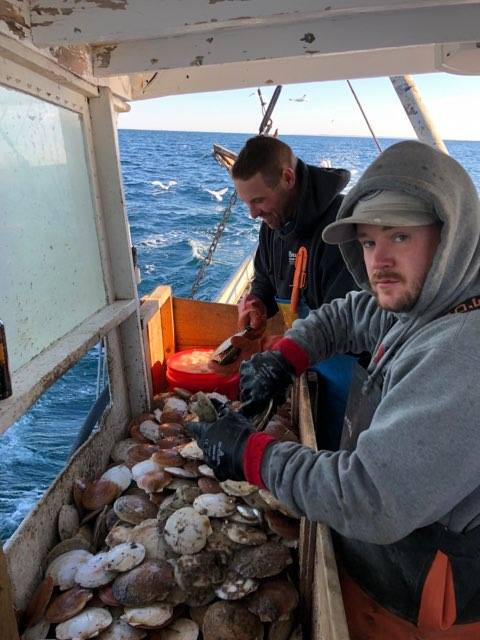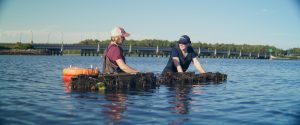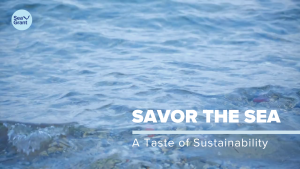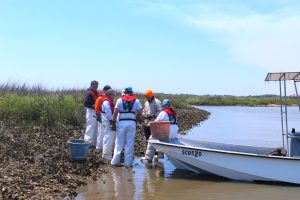Today, NOAA’s National Sea Grant Office is pleased to announce the selection of four projects aimed at developing and executing local, regional and national programs, workshops and services to help fishers enter career paths, supporting the Young Fishermen’s Development Act.
These four projects were selected through a competitive process that included national review panels. The selected projects will be based in Maine, California and Washington. NOAA is providing $987, 361 in federal funding to support the projects and the four projects will also provide a 25% non-federal match.
The selected projects exemplify Sea Grant’s work to support sustainable fisheries and aquaculture. Sea Grant’s fisheries portfolio encompasses national and local fisheries research, technical assistance and support for fishers through Sea Grant extension agents. Sea Grant also provides education and training programs through each of its 34 programs. Additionally, Sea Grant’s aquaculture portfolio features a diverse range of research and technical assistance efforts aimed at enhancing aquaculture across the country, including knowledge exchange hubs, technical research, social science initiatives and resources for new business owners.

Project descriptions
Young Fishermen’s Career Development Program
Maine
Providing hands-on career development opportunities for young fishermen in Gulf of Maine commercial fisheries through the Eastern Maine Skippers Program
Principal Investigator: Alexa Dayton
The Eastern Maine Skippers Program will address recruitment and retirement challenges in the commercial fishing sector by providing targeted career development opportunities for young New England fishers. The program will serve eight rural Maine coastal schools and train 80 high school students and 16 post-graduates annually through workshops, vessel-based activities and mentorship. By focusing on community engagement and collaboration with local fishing advisors, this program will foster a skilled workforce ready to enter Maine’s vital maritime professions.
Microlearning for young fishermen’s wellness and resilient career pathways
Principal Investigator: Monique Coombs
The Maine Coast Fishermen’s Association will create three micro-learning videos focused on physical and mental health and career resilience for young fishers. Recognizing that these crucial themes are often overlooked in traditional technical training, the brief videos will feature relatable personalities and engaging messaging to promote awareness among young fishers as part of their career planning. Alongside the videos, the Maine Coast Fishermen’s Association will establish an online knowledge hub to facilitate self-directed learning and connect viewers with trusted experts and additional resources. Overall, the project aims to provide young fishers with a broader perspective on career preparation while offering a modular resource for local and national training programs.
Washington
Skills ahoy! Empowering young fishermen and crew through development and skills training
Principal Investigator: Melissa Poe
Specialized technical skills and knowledge are needed for fishers to be successful in the commercial fishing industry, which has experienced declines in recent years. To address these needs, Washington Sea Grant will improve access to commercial fishing careers for new and young individuals in the Pacific Northwest by developing programs such as the Washington Young Fishermen and Crew Conference and Skills & Drills technical training. These programs will prepare the next generation for successful careers in commercial fishing while fostering valuable networking opportunities among both newcomers and experienced fishers. Ultimately, the project aims to cultivate a skilled and resilient workforce in the fisheries sector.
California
Commercial Fishing Apprenticeship Program for California
Principal Investigator: Theresa Sinicrope Talley
This project will extend California commercial fishing training to new apprentices and existing young fishers in two new regions, Santa Barbara Channel and Morro Bay, while continuing its presence in San Diego. Key activities will include collaborating with local fishing communities to customize training content, recruit and match mentors with apprentices, engage practical skills trainers and monitor the progress of the apprentices in real-world settings. The program will train at least 12 apprentices and young fishers who will secure crew member jobs or expand capabilities, along with safety training for approximately 25 additional fishers. This project will strengthen connections among veteran and early career fishers, new entrants, trainers and California Sea Grant Extension staff, create a model that can be adapted for other regions and enhance the resilience of California’s fishing industry. Additionally, local fishing communities will benefit from skilled labor and safety training, supporting apprentices in their career development.


Lauren Alvaro
BIL & IRA Engagement Specialist
National Sea Grant Office


